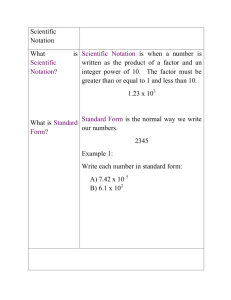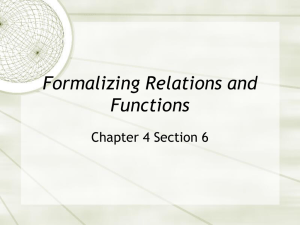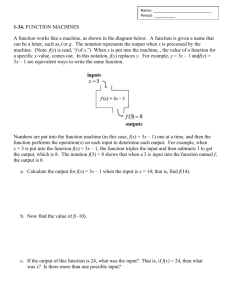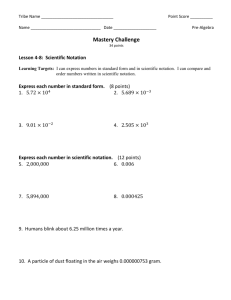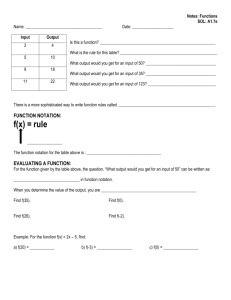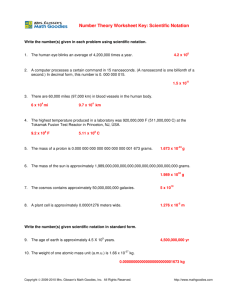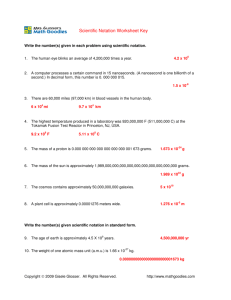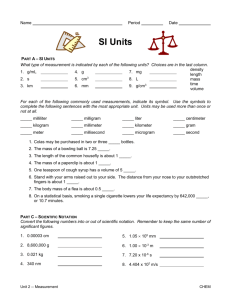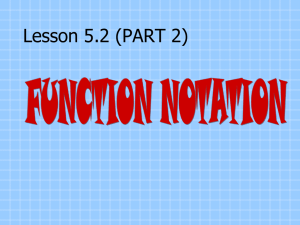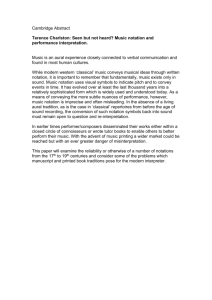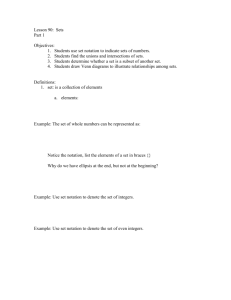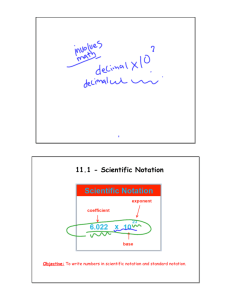List of ideas for math projects
advertisement
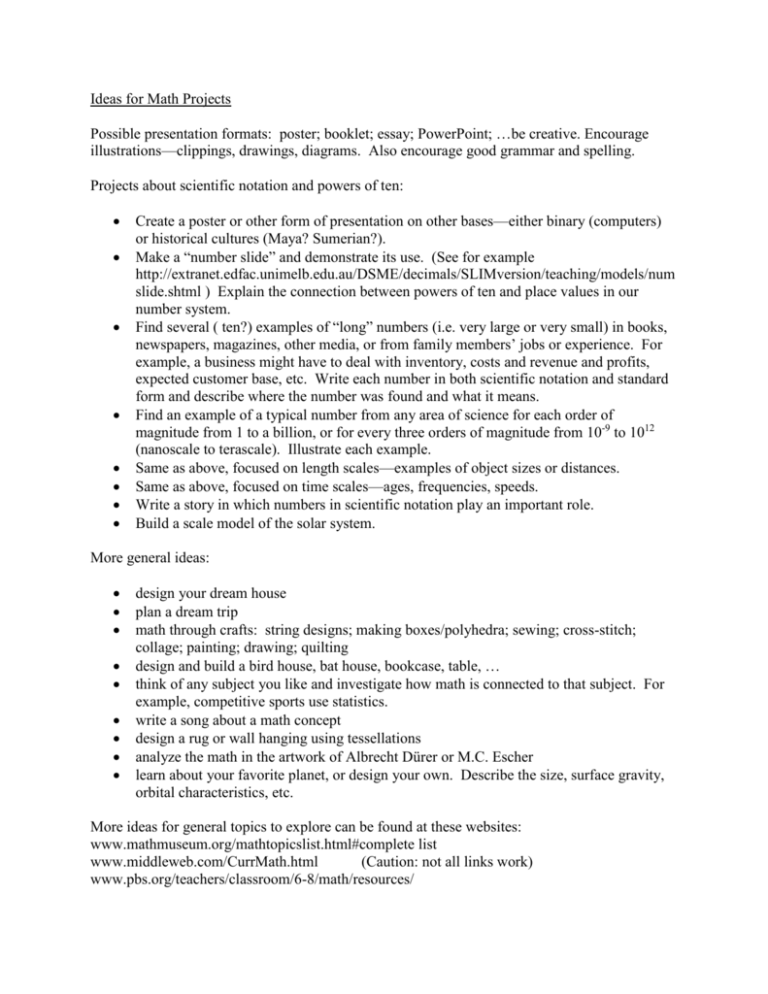
Ideas for Math Projects Possible presentation formats: poster; booklet; essay; PowerPoint; …be creative. Encourage illustrations—clippings, drawings, diagrams. Also encourage good grammar and spelling. Projects about scientific notation and powers of ten: Create a poster or other form of presentation on other bases—either binary (computers) or historical cultures (Maya? Sumerian?). Make a “number slide” and demonstrate its use. (See for example http://extranet.edfac.unimelb.edu.au/DSME/decimals/SLIMversion/teaching/models/num slide.shtml ) Explain the connection between powers of ten and place values in our number system. Find several ( ten?) examples of “long” numbers (i.e. very large or very small) in books, newspapers, magazines, other media, or from family members’ jobs or experience. For example, a business might have to deal with inventory, costs and revenue and profits, expected customer base, etc. Write each number in both scientific notation and standard form and describe where the number was found and what it means. Find an example of a typical number from any area of science for each order of magnitude from 1 to a billion, or for every three orders of magnitude from 10-9 to 1012 (nanoscale to terascale). Illustrate each example. Same as above, focused on length scales—examples of object sizes or distances. Same as above, focused on time scales—ages, frequencies, speeds. Write a story in which numbers in scientific notation play an important role. Build a scale model of the solar system. More general ideas: design your dream house plan a dream trip math through crafts: string designs; making boxes/polyhedra; sewing; cross-stitch; collage; painting; drawing; quilting design and build a bird house, bat house, bookcase, table, … think of any subject you like and investigate how math is connected to that subject. For example, competitive sports use statistics. write a song about a math concept design a rug or wall hanging using tessellations analyze the math in the artwork of Albrecht Dürer or M.C. Escher learn about your favorite planet, or design your own. Describe the size, surface gravity, orbital characteristics, etc. More ideas for general topics to explore can be found at these websites: www.mathmuseum.org/mathtopicslist.html#complete list www.middleweb.com/CurrMath.html (Caution: not all links work) www.pbs.org/teachers/classroom/6-8/math/resources/
